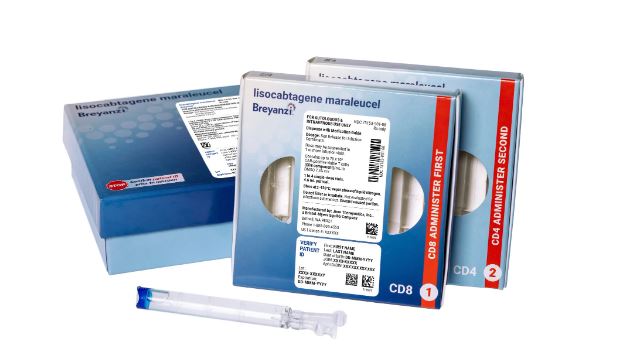The Food and Drug Administration (FDA) is mandating a boxed warning for CAR-T (chimeric antigen receptor T-cell) therapies, specifying that the treatments may potentially cause secondary cancers. Despite acknowledging the risks, the FDA emphasizes that the benefits of CAR-T therapy outweigh the potential adverse effects.
CAR-T therapy involves the extraction of T cells (a type of white blood cell) from a patient, followed by genetic engineering to create chimeric antigen receptors (CARs) on the T cells. These engineered cells are then reintroduced into the patient’s bloodstream, enabling them to attach to cancer cells and eliminate them. Primarily used to treat blood cancers such as multiple myeloma, CAR-T therapies have been associated with warnings about immune responses and neurological risks.
The decision to include a boxed warning follows reports of approximately 25 cases of secondary cancers suspected to be linked to CAR-T treatments. However, further investigation is needed to establish a definitive connection. Since its FDA approval in 2017, CAR-T therapy has been administered to at least 27,000 patients.
The new warning comes as an addition to existing safety concerns and regulatory measures outlined by the FDA. Cancer patients undergoing CAR-T treatment often have limited alternative options, and despite the additional warning, the potential benefits of the therapy for these patients remain significant.
Dr. John DiPersio, an oncologist with Washington University in St. Louis, emphasizes that patients receiving CAR-T therapy face critical situations with few treatment alternatives. For these patients, the risks associated with not pursuing CAR-T therapy could lead to rapid disease progression or death.
The FDA expressed concerns about the adverse effects of CAR-T treatments in late 2022. In response, the agency issued letters dated January 19 to companies producing CAR-T therapies, instructing them to include the additional warnings and monitor patients for secondary cancers. The FDA expects companies to report any cases of secondary cancers to the agency.
The companies receiving these letters include Bristol-Myers Squibb (Abecma), Juno Therapeutics (a Bristol-Myers Squibb Company, Breyanzi), Janssen Biotech of Johnson & Johnson (Carvykti), Novartis (Kymriah), and Kite Pharma (Yescarta).
The FDA’s directive also mandates drug labels to include warnings about secondary cancers potentially manifesting weeks after CAR-T infusion, with potential fatal outcomes. While the agency acknowledges the risks, the overall rarity of the side effect and the critical medical conditions of the patients receiving CAR-T therapy contribute to a balanced risk-benefit assessment.
Dr. DiPersio hopes that the new warning will not deter further investment and research into CAR-T therapy for other severe medical conditions. Some pharmaceutical companies are exploring the use of CAR-T therapy to treat lupus, an autoimmune disease.
Financial analysts anticipate limited repercussions from the additional warning, emphasizing the rare occurrence of secondary cancers as a side effect. The potential benefits, including prolonged survival, associated with CAR-T treatments are expected to outweigh concerns about the updated labels, with minimal impact on the use of these therapies.
The FDA’s decision reflects a nuanced approach, acknowledging potential risks while maintaining a commitment to providing critical treatment options for patients facing life-threatening conditions. As the field of CAR-T therapy evolves, ongoing research and surveillance will be crucial in refining safety assessments and optimizing patient outcomes.

